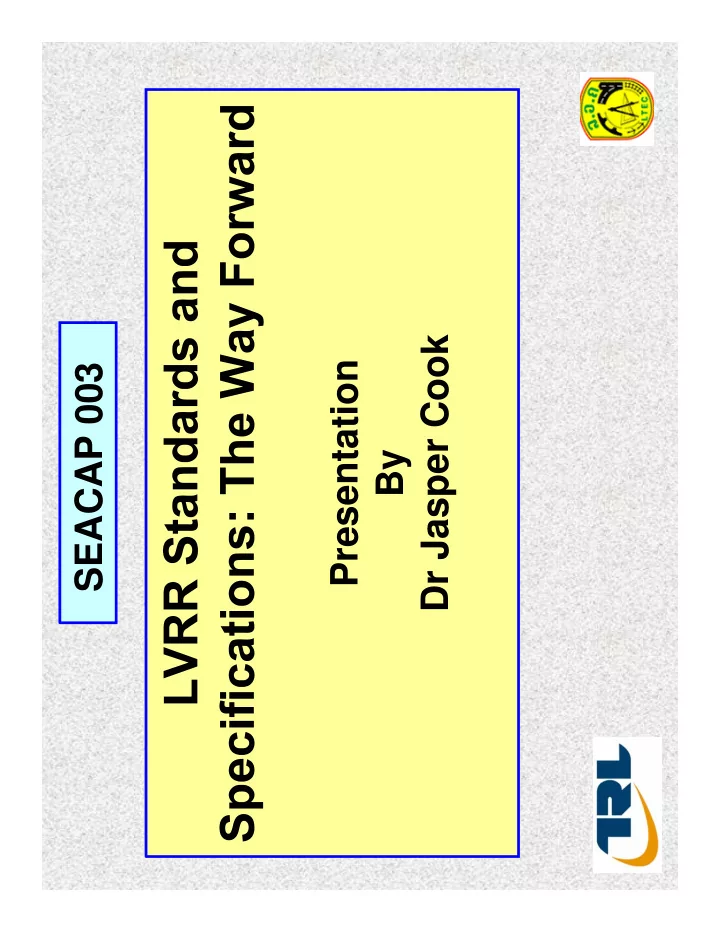

1 Dr Jasper Cook Presentation SEACAP 003 By
Provide some ideas for discussion on the way forward for the LVRR Standards and Specification outputs in particular and possibly the SEACAP project in general. Areas for discussion: Dissemination/mainstreaming objectives � Strategies for achieving objectives � Technical issues � 2
A working framework of effective LVRR Standards and Specifications in place within the MPWT, that is :- Required on MPWT programmes � Fully adopted at OPWT level � Part of all LVRR Donor projects � 3
Establishment of a structured research capability to undertake effective and practical research to sustain the development of the LVRR Standards and Specifications and other rural road initiatives (eg slopes, structures, maintenance etc) 4
An established HRD (Human Resource Development) capacity that is able to support professional training needs for the effective application of the LVRR Standards and Specifications and the other initiatives. 5
Mainstreaming/dissemination on four fronts: 1. A central MPWT level : overall facilitation and guidance 2. Donors/NGOs - LVRR standards used rural road programmes. 3. The NUL – links with the Rural Engineering Modules is essential for the medium –long term sustainability 4. At OPWT level – practical use - CRUCIAL 6
It may be that the preferred scenario would be a Bottom Up driven demand for the application of the LVRR approaches supported by Top Down administration and facilitation. In other words - an emphasis on dissemination and technical knowledge exchange at OPWT level to create needs awareness 7
A clear message from the SEACAP 3 training course was the appreciation by front-line engineers that the LVRR approach held significant advantages for them in terms of : Provision of good engineering solutions � Effective management of resources � Delivery of poverty alleviation targets � 8
Hands–on training at OPWT level. Training needs to cover all provinces – perhaps in 5 or 6 regions. This could be based on the Pilot Training Course Model, but with possibly greater emphasis on problem solving exercises, which could be adapted to suit particular regional problems. Some form of follow-up “after sales service” advice centre (website?) would be useful. 9
Practical demonstration of advantages of the SEACAP 3 approach to LVRRs – use rural road add-ons to upcoming projects (eg ADB11) to show-case how real benefits can be achieved in rural road engineering with this approach. 10
The SEACAP project has indicated a number of technical issues or knowledge gaps that need addressing. These include: Low cost structures and drainage – adaptation of existing manual? Knowledge of actual rural road performance – sealed and unsealed gravels Actual rural traffic patterns and VOCs 11
The SEACAP initiatives have gathered a research momentum that alongside the support and cooperation of the DoR could make a significant contribution to cost- effective rural infrastructure development in Lao. This momentum should not be allowed to run down. 12
Recommend
More recommend